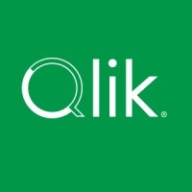

Qlik Talend Cloud and Informatica Intelligent Data Management Cloud compete in the data management solutions category. Informatica IDMC seems to have the upper hand due to its extensive feature set despite its higher price point.
Features: Qlik Talend Cloud integrates operational and analytical data with open-source data quality capabilities, advanced monitoring, and flexibility in custom coding. It offers a wide range of connectors and the community edition enables customization. Informatica IDMC offers comprehensive integration of MDM, data quality, and data modules, making it favored for large-scale implementations.
Room for Improvement: Qlik Talend Cloud struggles with system instability, high memory consumption, and lacking built-in AI capabilities. Enhancement in technical support and documentation is needed. Informatica IDMC requires improvement in GUI usability and price reduction, along with better preconfigured business rules and regional support.
Ease of Deployment and Customer Service: Qlik Talend Cloud offers flexible deployment options suitable for on-premises and cloud environments, praised for its customer service. Informatica IDMC includes a wide range of deployment formats in hybrid and cloud settings, though its complex integration options need refinement to enhance user experience.
Pricing and ROI: The subscription-based model of Qlik Talend Cloud is seen as cost-effective, delivering better ROI through its rapid deployment. Informatica IDMC is considered more expensive, yet offers a strong long-term ROI for larger organizations due to its comprehensive capabilities.
Leadership prefers to utilize third-party tools, such as Snowflake, which has both storage and ELT features.
The stability and performance remain issues.
Compared to Collibra Catalog, where the value is noticeable within six months.
It has helped us save a lot of time by automating repetitive data processes and reducing manual interventions.
We achieved around 20% to 30% time savings in the ETL process, reduced operational errors, and improved pipeline stability.
We actually achieved the first 18 months worth of work in the first six months.
Due to the tool's maturity limitations, solutions are not always simple and often require workarounds.
Even after going out of service support, they still reached back to me whenever I raised tickets.
We expect more responsive assistance because they have the expertise since Informatica is their tool, but I don't see enough expertise on the Informatica support side.
The support team is responsive when we raise issues, and they usually provide clear guidance or solutions.
I would rate the technical support from Talend Data Quality as an 8 or 9.
The customer support for Talend Data Integration is very good; whenever I raise a ticket in the customer portal, I immediately receive an email, and follow-up communication is prompt.
I have used the product over multiple systems and was able to write reports for large data sets without any performance issues.
As a SaaS platform, IDMC is quite scalable and provides complete flexibility.
There are many options available, and the licensing model is quite good, supporting our needs effectively.
By using features like job parallelization and modular design, we can expand our data flows without having to rebuild everything.
Its scalability is good, as Qlik Talend Cloud can handle large amounts of data and grow as needed, especially in cloud environments.
The scalability of Talend Data Integration is good; if it weren't scalable, it wouldn't be reliable.
Stability is crucial because IDMC holds business-critical data, and it needs to be available all the time for business users.
There are substantial stability issues with Informatica Cloud Data Quality on the cloud.
I find the stability to be good, with occasional restarts required every two to three months due to glitches.
We have not encountered many issues with remote engines, and the interfaces are properly developed.
Once the jobs are properly designed and deployed, they run reliably without major issues.
It was not as stable when we were using TAC and on-premise systems, but currently, with Qlik Talend Cloud version 8.3 or 8.1, it is stable.
The tool needs to mature in terms of category-specific attributes or dynamic attributes.
The current solution requires code-writing and tweaking, while other solutions offer material-level matches.
If the development interface could be optimized to have fewer modules, it would be greatly beneficial.
On the flip side, that is one of its amazing strengths, as you are not locked into a very rigid way of doing something.
Better cost and resource visibility would help teams optimize their workloads.
It would be great to have more ready-to-use connectors for modern cloud and SaaS platforms.
It ranges from a quarter million to a couple of million a year.
Informatica Intelligent Cloud Services is affordable for my specific use cases, with the pricing being rated three or four on a scale where one is very cheap.
Regarding pricing, compared to other tools I have worked with, Informatica offers competitive pricing, which I find not high in terms of starting strategy.
My experience with Talend Data Integration's pricing, setup cost, and licensing is that it is a bit higher compared to other tools, making it not very affordable.
The license cost has increased significantly, leading many companies to seek more profitable options in the market.
The platform's ability to pull in data from other platforms without the need for an additional integration tool enhances its appeal.
The connectors serve as the main functionality, making data integration processes more efficient by saving time and effort.
We could run data quality rules as part of Service Bus, which ensured the integrity of customer information before it was entered into our database.
By automating daily data loading processes, we reduced manual effort by around three or four hours per day, which saved roughly 60 to 80 hours per month.
We perform profiling prior to data quality and post-data quality, and based on that, we determine how much it has improved to measure the efficiency of Talend Data Quality cleaning tools.
The feature that has made the biggest difference for me in Qlik Talend Cloud is the scheduling and automation, which helps me run ETL jobs automatically without manual work.
| Product | Market Share (%) |
|---|---|
| Informatica Intelligent Data Management Cloud (IDMC) | 9.9% |
| Qlik Talend Cloud | 7.0% |
| Other | 83.1% |

| Company Size | Count |
|---|---|
| Small Business | 51 |
| Midsize Enterprise | 27 |
| Large Enterprise | 153 |
| Company Size | Count |
|---|---|
| Small Business | 20 |
| Midsize Enterprise | 11 |
| Large Enterprise | 20 |
Informatica Intelligent Data Management Cloud (IDMC) offers seamless integration of master data management, data quality, and data integration with a cloud-native architecture supporting multiple data management styles, optimizing data governance through metadata management.
IDMC enhances data synchronization and mapping tasks, utilizing a broad range of connectors to interact efficiently with data sources. Its precise address validation via AddressDoctor and intuitive navigation bolster user empowerment, delivering agility, scalability, and security in data governance. Despite its strengths, areas like ease of use, SAP integration, and reporting could benefit from enhancements. Connectivity issues and workflow complexities are noted, needing improvements in performance, support, and licensing cost. Users demand expanded ETL capabilities, real-time processing, and broader data source support to address growing data needs.
What are the key features of IDMC?In industries such as banking, healthcare, and telecom, IDMC is implemented for data integration, cloud migration, and enhancing data quality. Its capabilities are crucial for metadata management, lineage tracking, and real-time processing, ensuring high data quality and streamlined operations.
Qlik Talend Cloud provides robust data integration tools tailored for efficient management of large volumes, offering real-time data access, Java integration, and custom code capabilities for developers.
Qlik Talend Cloud is known for its extensive connectivity options, enabling seamless integration across different platforms, such as S3, Redshift, Oracle, and SQL Server. The central repository facilitates consistent metadata access throughout organizations, enhancing collaboration. Despite its strengths in advanced monitoring, automation, and user-friendly drag-and-drop interfaces, users face challenges with installation stability, technical support, documentation inconsistencies, and complexities in learning. Performance concerns also include multitasking limitations and excessive memory usage. The platform's licensing costs can be prohibitive for smaller companies, while demands for improved data governance and intuitive code management continue. Its applications in healthcare data parsing, ETL task automation, and diverse data platform integration demonstrate its utility, although there's a constant demand for better scalability and efficient transformations.
What are the key features?In specialized industries like healthcare, users leverage Qlik Talend Cloud for data integration and transformation, aiding in compliance and analytics. Compatibility with cloud and on-premises systems ensures adaptability to complex data tasks, facilitating business application development. Organizations focus on enhanced data ingestion and quality checks for comprehensive solutions.
We monitor all Data Quality reviews to prevent fraudulent reviews and keep review quality high. We do not post reviews by company employees or direct competitors. We validate each review for authenticity via cross-reference with LinkedIn, and personal follow-up with the reviewer when necessary.